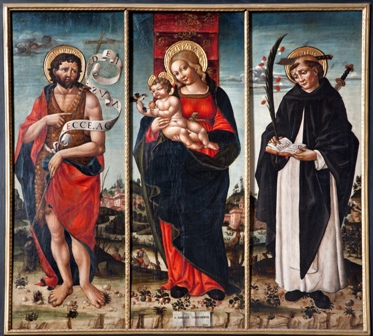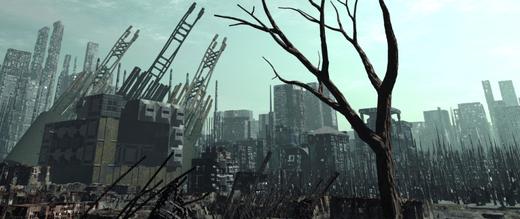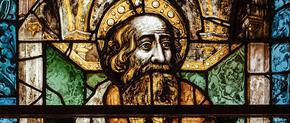The views expressed in our content reflect individual perspectives and do not represent the authoritative views of the Baha'i Faith.
Many people have fearfully contemplated the Biblical visions of the end of the world. However, two Greek words can be translated as “world”: kosmos and aion. Kosmos represents the physical world; Aion represents an eon or age. Both are used in the Bible, but only one is used in the phrase “end of the world” as in this verse from the King James Version of the Bible.
I am with you always, even unto the end of the world. – Matthew 28:20
Recent scholarship has determined that the Bible uses the word “aion”, not the word “kosmos” in this passage. Consequently, the editors of the New King James Version have corrected this inaccuracy, and this passage now reads:
I am with you always, even unto the end of the age. – Matthew 28:20
What implications come from this new understanding? Is humanity already living in a new age? Could this be the age of Baha’u’llah? Baha’is say yes to these critical questions.
Some Christians will wonder — If the end of the world, or the end of an age has taken place, why hasn’t the rapture already occurred? Scripture characterizes the rapture in the following passage:
For the Lord himself shall descend from heaven with a shout with the voice of the archangel, and with the trump of God: and the dead in Christ shall rise first: Then we which are alive and remain shall be caught up together with them in the clouds, to meet the Lord in the air: and so shall we ever be with the Lord. – 1 Thessalonians 4:16-17
If we explore the meaning of the terms heaven, trumpet, death, and clouds, we might unfold a clearer picture of this passage’s meaning.
First, the term “heaven” is used in scripture in interesting ways. Must it refer to the physical heaven? While standing on the Earth, Christ said:
And no man hath ascended up to heaven, but he that came down from heaven, even the Son of man which is in heaven. – John 3:13
Clearly Christ stands on the Earth as He declares that He is in heaven. He also declares He came from heaven even though everyone knew He came from the womb of Mary. So if standing in heaven and coming from heaven do not have a literal meaning, it seems entirely possible that returning from heaven also does not have a physical significance. Could it then mean that Christ will come from the heaven of God’s will?
As for a “trumpet”, scripture likens it to the voice of Christ. The Apostle John conveyed:
I was in the Spirit on the Lord’s day, and heard behind me a great voice, as of a trumpet. – Revelation 1:10
 Why does John depict Christ’s voice as a trumpet? Trumpets traditionally announce the coming or appearance of a king – and the symbol obviously alludes to Christ as King.
Why does John depict Christ’s voice as a trumpet? Trumpets traditionally announce the coming or appearance of a king – and the symbol obviously alludes to Christ as King.
Comparatively, can anything announce Christ’s appearance more directly than His own voice, the voice that serves as His blaring trumpet blast? In like manner, what trumpet blares at the Return of Christ? Baha’is believe that Bahá’u’lláh’s teachings, the trumpet blast of a new revelation, proclaim His own appearance and the establishment of a new Faith.
In Biblical use, the term “death” often depicts the spiritually dead rather than the physically dead. For example, Christ said to a believer who wished to bury his father first before serving Christ: “Let the dead bury the dead . . .” – Luke 9:60. Here Christ likens death to a spiritual condition rather than the actual physical death of the body. In reality He is saying, “let the spiritually dead bury the physically dead, and let those whose spirits are alive follow Me.”
As for “clouds”, as explained earlier, they stand for anything that prevents us from seeing God’s Divine teacher. Just as nobody can see someone obscured by physical clouds, the Divine teacher, obscured by spiritual clouds, cannot be seen unless one enters the clouds to be near Him. In other words, one must draw close to the Divine Teacher, of one’s own volition, penetrating the spiritual clouds that cause many to reject the Divine Teacher.
Furthermore, other passages seem to indicate that “the rapture” symbolizes the concept of “rebirth” or rising from spiritual death or disbelief. Consider what took place immediately after the crucifixion.
Jesus … yielded up the ghost. … And the graves were opened; and many bodies of the saints which slept arose, and came out of the graves… and went into the holy city, and appeared unto many. – Matthew 27:50-53
Was this rising out of graves a physical phenomenon? Obviously not. Surely history would have recorded such a spectacular event. Instead, perhaps it gives further indication that the rapture is the rebirth of faith that takes place when God sends a new message to humanity — just like the bodies of the saints that arose at the time of Christ’s crucifixion represent those who embraced Christ’s message and transcended the physical world as a result.
Read the next article in the series: A New Revelation on the Battle of Armageddon
Read the previous article in the series: Christ’s Warning – the Anti-Christ

















Comments
Sign in or create an account
Continue with Facebookor